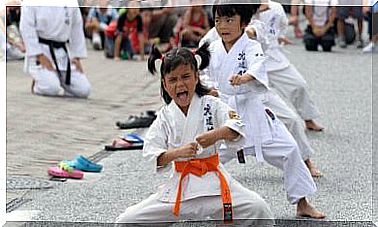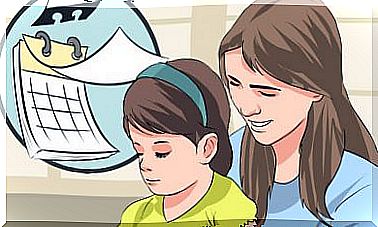Emotional Neglect Breeds Unassertive Adults

Have you ever wondered how emotional neglect affects your life? The truth is, it can end up producing non-assertive adults. You know why? Let’s try to give an answer to that question.
Notions about assertiveness
Assertiveness is an essential quality for life. It is the characteristic that helps us avoid problems when relating to other people. Furthermore, it is vital not to lose patience and to live in a more balanced and relaxed way.
Assertiveness is the ability we have to value our rights. Something we need to be able to do without being passive or aggressive. And this is achieved by respecting other people’s rights. Although it seems simple to carry out, the truth is that it is not always easy in practice.
So much so that most people cannot be assertive, or are very little. To find the reason for this, it is often necessary to go back to childhood itself. People who grew up in a home where emotional neglect was practiced failed to further develop assertiveness.
Remember that by emotional neglect we are referring to ignoring the feelings of others.
Assertive rights in the face of emotional neglect
There are a number of basic assertive rights:
judgment of yourself
You have the right to judge your own behavior and to take responsibility for it. In other words, you have the right not to explain your behavior, to consider whether you take responsibility for solving other people’s problems, changing your mind, making mistakes, saying “no”, etc…
express emotions
It has been shown that people who were raised with an education provided by parents or guardians who felt that expressing emotions was negative are more likely to not be aware of their rights. If your parents ignored or punished what you thought, you will unconsciously think that your emotions and your needs are unimportant.

A proof of this is to see if more than once you’ve heard similar or similar phrases to these: “you can’t let others know how you feel or what you really think” or “don’t cause changes”.
If the answer is yes, you should know that these are phrases coming from the speech of your parents or legal guardians. Although you are not aware of it, they are imprinted in your unconscious and eventually determine your behavior, even though you may already be an adult.
So what is emotional neglect?
Emotional neglect refers to the inability to respond properly to children’s emotional needs.
One of the parents’ tasks should be to validate their children’s emotions and teach them to channel them. Parents or guardians are the children’s true emotional role models, as they are their references in all aspects of life.
If parents are not able to recognize these emotions, the child will not know what to do because he understands that what he thinks or feels is not appropriate.
This effect means that, in adulthood, the person also does not trust their emotions or their instincts, and has a low self-esteem. In addition, it is easy for adults who have been raised this way to have difficulty expressing their emotions assertively. All of this means that, in the end, you always resort to extreme postures: either you allow yourself to be stepped on or you relate aggressively.
The importance of developing assertiveness
If the bases that constitute assertiveness are taken into account, this aspect can be developed at any stage of life, especially from childhood. Among these fundamentals is the fact of knowing how to recognize one’s emotions and label them. Know how you feel and why, so that you can better face this feeling.

Of course, it is also important to know how to value the opinions of others. You must be aware that, among people, we can disagree without judging or belittling those who think differently than you, and that is exactly what we should demand.
All of this will lead us to develop a healthy self-esteem that will help us understand that mistakes do not diminish our value, but that they can enrich us and help us grow as a person. That way, we won’t feel threatened by other people.









